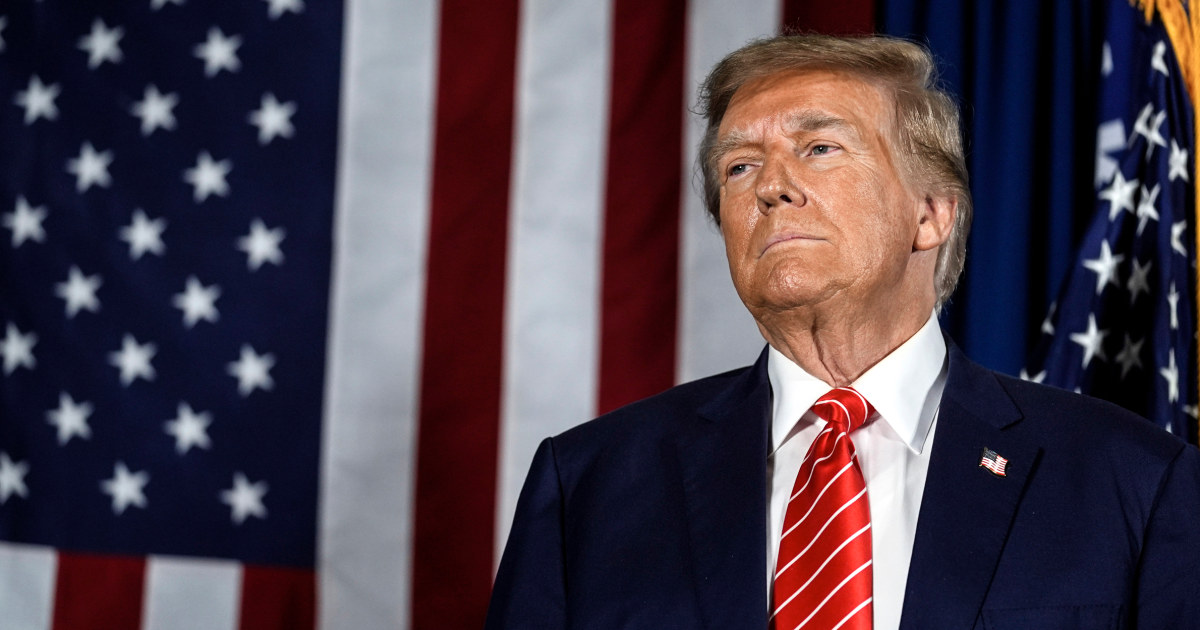
The words “chaos and bedlam” are now synonymous with Jan. 6, 2021. That is also what Donald Trump’s lawyers argue will ensue if the U.S. Supreme Court allows any state to kick the former president off the 2024 ballot for his role in attempting to block the peaceful transfer of power. Trump’s eligibility to return to the White House hinges on one paragraph in the U.S. Constitution that is far from a model of clarity. Here’s what it says, doesn’t say, and why this matters as the case moves forward.
What does Section 3 of the 14th Amendment say?
Section 3 of the 14th Amendment contains one very long sentence laying out the circumstances under which someone can be disqualified from holding public office, but it raises many tough questions that have gone largely unanswered since the amendment was enacted more than 150 years. It says:
“No person shall be a Senator or Representative in Congress, or elector of President and Vice-President, or hold any office, civil or military, under the United States, or under any State, who, having previously taken an oath, as a member of Congress, or as an officer of the United States, or as a member of any State legislature, or as an executive or judicial officer of any State, to support the Constitution of the United States, shall have engaged in insurrection or rebellion against the same, or given aid or comfort to the enemies thereof. But Congress may by a vote of two-thirds of each House, remove such disability.”
English translation: If you took an oath to support the Constitution, and you break that oath by engaging in an insurrection — then you don’t get to hold public office again. But Section 3 is silent about whether the president or presidency are included here, what counts as an insurrection, and who exactly is supposed to enforce all of this.
The provision was driven by a concern among the 14th Amendment’s framers that ex-Confederate leaders would get voted back into office after the Civil War. But there’s a fair amount of legal murkiness in the text itself, along with a dearth of past cases to draw on as precedent, all of which has led to the hotly debated legal fight over Trump’s eligibility to run for president again.
Where do things stand right now?
Colorado’s Supreme Court handed down a lengthy decision in December that found that the former president should be removed from the state’s primary ballot on every possible ground under the 14th Amendment. Undoubtedly knowing the decision would prove controversial and prompt an appeal, the state’s high court put the removal of Trump from the state’s ballot on hold, giving Trump time to appeal to the U.S. Supreme Court.
Because the decision remains frozen until a final ruling from the justices, Trump currently remains on the Colorado ballot and elsewhere. Officials in Maine have also sought to remove Trump from the state’s ballot, but are also awaiting the Supreme Court’s decision in the Colorado case.
What are Trump’s arguments to stay on the ballot?
Trump’s team has raised a host of different legal challenges to the Colorado ruling, but primarily argues that:
Trump is not covered by the ballot disqualification provision of the 14th Amendment at all because the president is not an “officer of the United States”; his actions leading up to and on Jan. 6 do not constitute an “insurrection or rebellion”; and only Congress can enforce this provision, not state courts.
These are likely some of the key issues that the Supreme Court justices could grapple with now that the case has landed at their feet, or they could focus on only one. How deeply the high court decides to wade into the merits of what the former president has been accused of remains to be seen.
What happens if the Supreme Court rules in Trump’s favor?
It depends on exactly how Trump wins the case. If he prevails on any one of the different legal arguments outlined above, the entire case goes away and he’ll remain on the ballot. Some legal commentators have argued that the justices could rule that Trump is free to keep running for office now, but barred from holding office again, citing the exact text of the 14th Amendment. That type of ruling, though, would merely kick the can down the road, forcing the high court to return to this issue if he wins the election in November.
What happens if the Supreme Court rules against Trump?
If the Supreme Court agrees that states can lawfully kick Trump off the ballot under the 14th Amendment, then Trump won’t be immediately disqualified in every state. Instead, the issue will return to individual states.
Colorado and Maine have signaled that they would remove Trump from the ballot. But time is on Trump’s side. Barring a quick ruling by the Supreme Court that prevents Trump from running, he will likely remain on the Republican primary ballot for Super Tuesday on March 5. A ruling against Trump could also potentially prompt more litigation and further appeals to the Supreme Court.
Source: | This article originally belongs to Nbcnews.com










